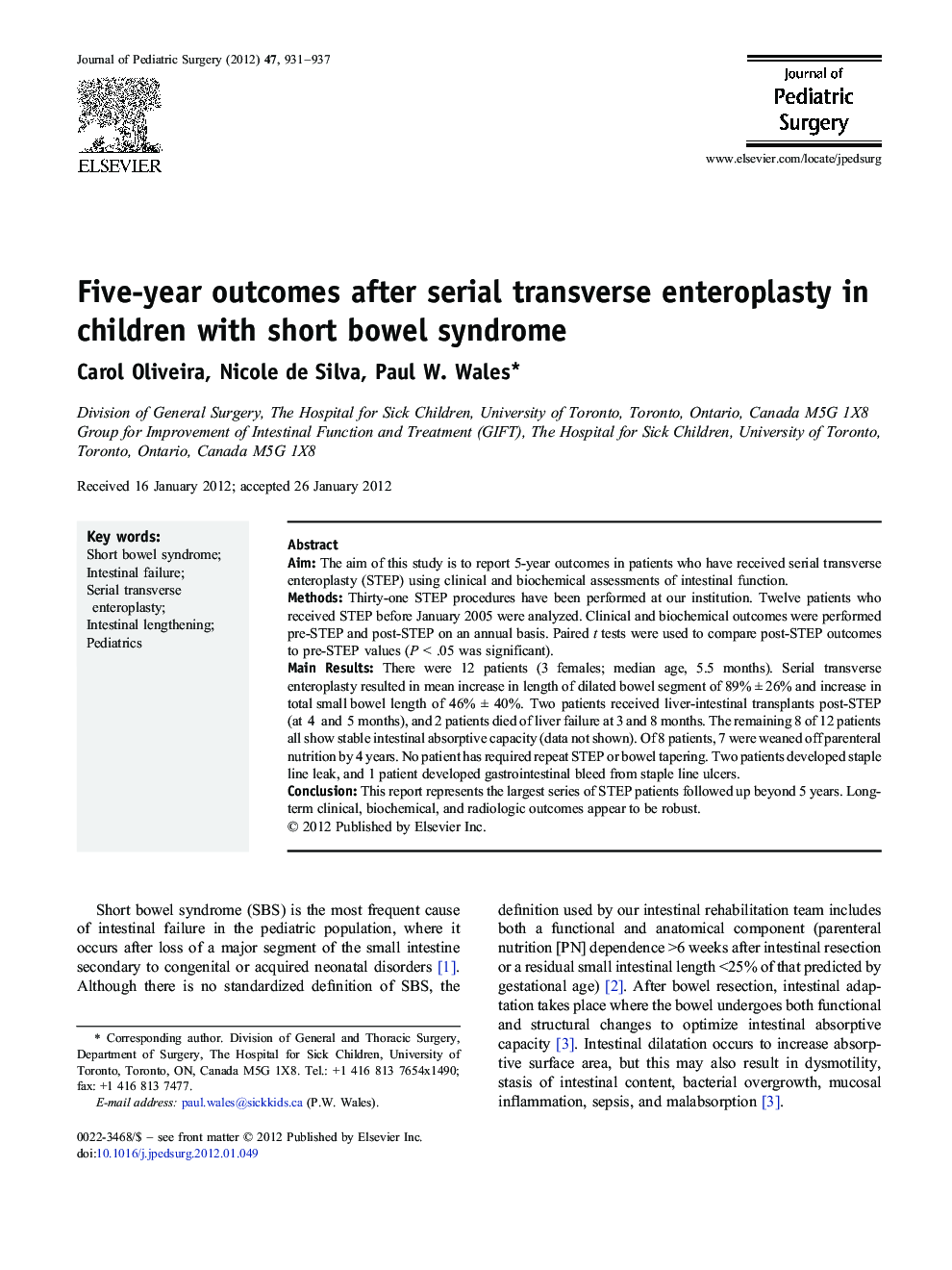| Article ID | Journal | Published Year | Pages | File Type |
|---|---|---|---|---|
| 4155854 | Journal of Pediatric Surgery | 2012 | 7 Pages |
AimThe aim of this study is to report 5-year outcomes in patients who have received serial transverse enteroplasty (STEP) using clinical and biochemical assessments of intestinal function.MethodsThirty-one STEP procedures have been performed at our institution. Twelve patients who received STEP before January 2005 were analyzed. Clinical and biochemical outcomes were performed pre-STEP and post-STEP on an annual basis. Paired t tests were used to compare post-STEP outcomes to pre-STEP values (P < .05 was significant).Main ResultsThere were 12 patients (3 females; median age, 5.5 months). Serial transverse enteroplasty resulted in mean increase in length of dilated bowel segment of 89% ± 26% and increase in total small bowel length of 46% ± 40%. Two patients received liver-intestinal transplants post-STEP (at 4 and 5 months), and 2 patients died of liver failure at 3 and 8 months. The remaining 8 of 12 patients all show stable intestinal absorptive capacity (data not shown). Of 8 patients, 7 were weaned off parenteral nutrition by 4 years. No patient has required repeat STEP or bowel tapering. Two patients developed staple line leak, and 1 patient developed gastrointestinal bleed from staple line ulcers.ConclusionThis report represents the largest series of STEP patients followed up beyond 5 years. Long-term clinical, biochemical, and radiologic outcomes appear to be robust.
